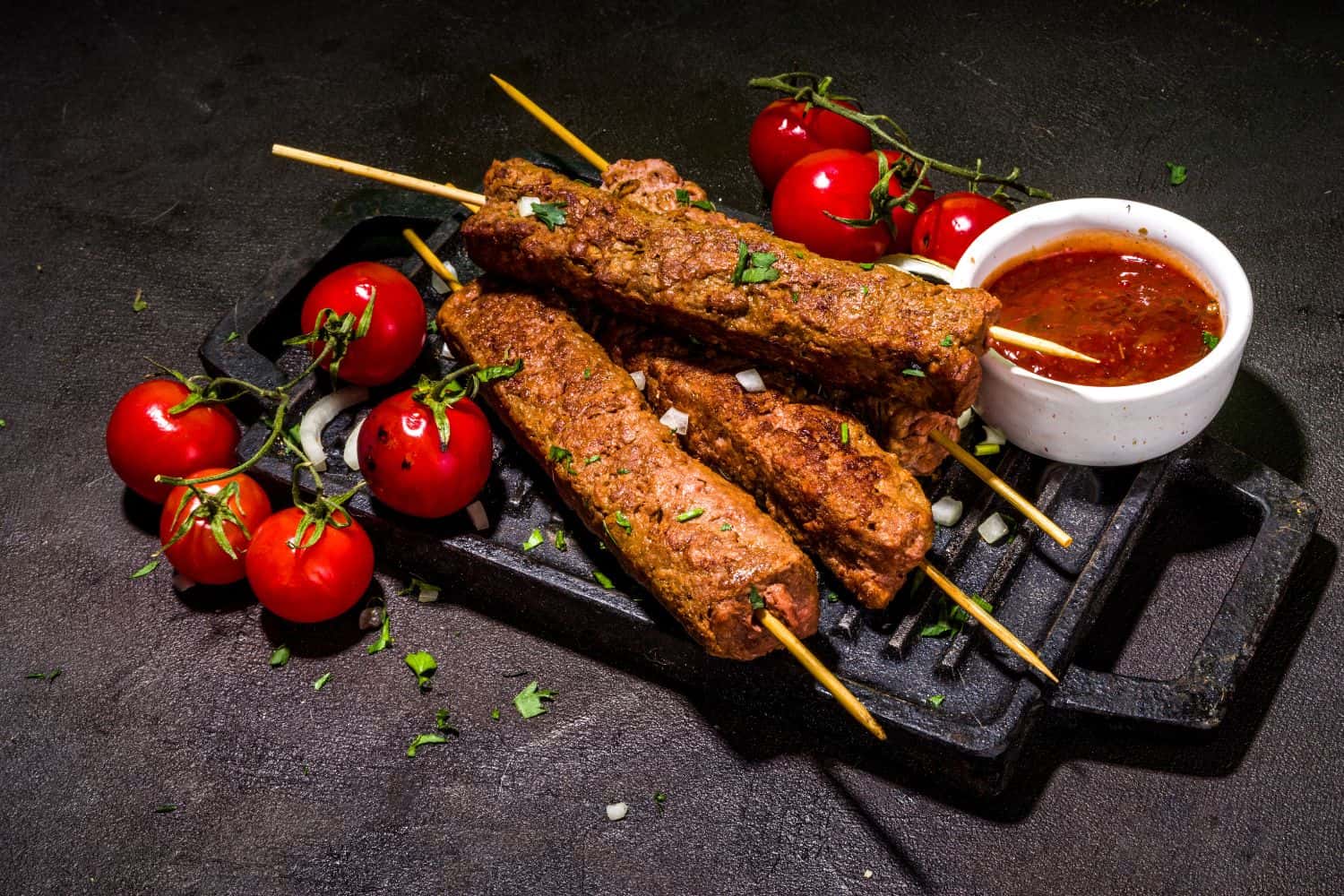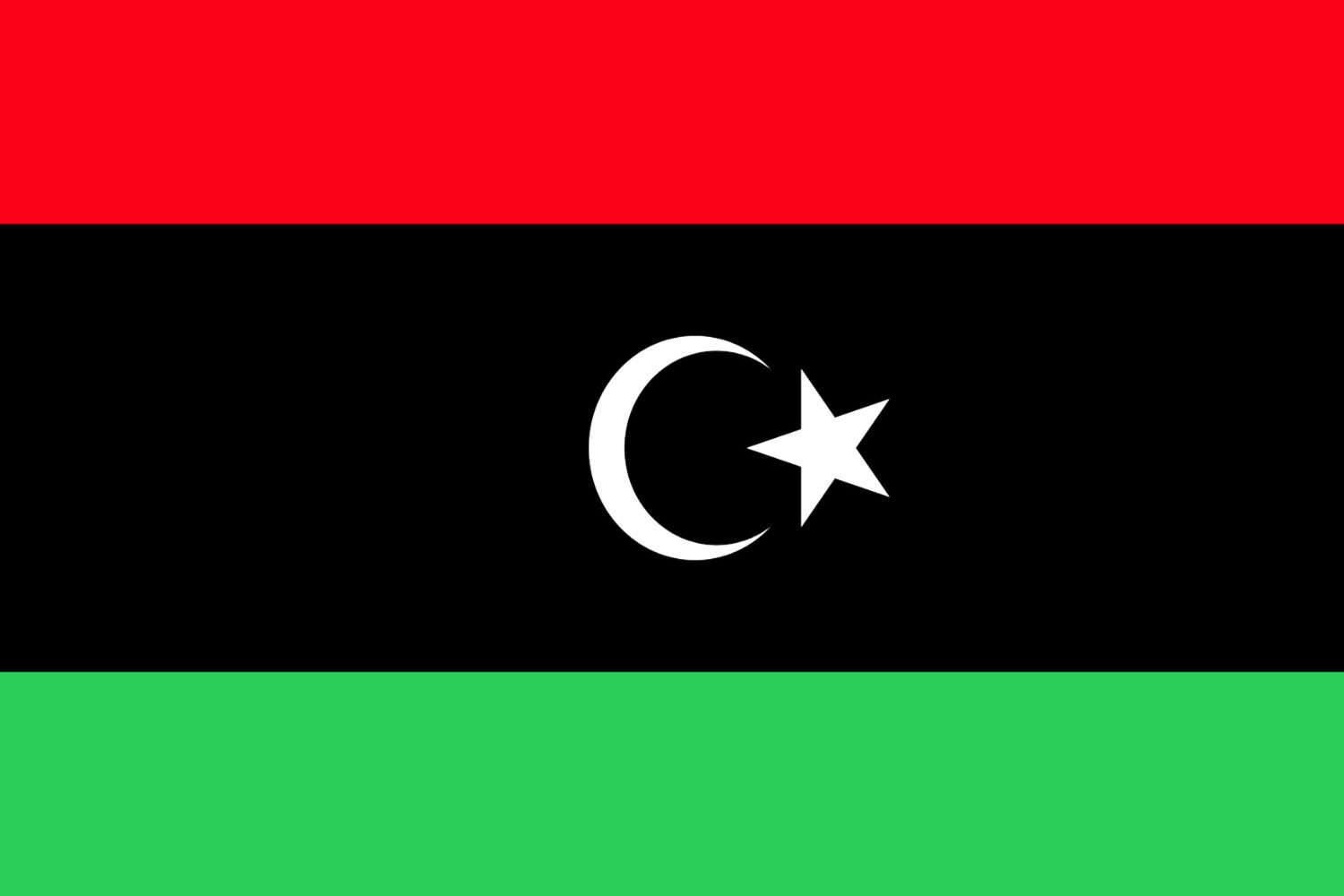Table of Contents
Embarking on a culinary journey through Libya reveals a captivating tapestry of flavors and cultural heritage. The food from Libya, influenced by North African, Mediterranean, Arab, and Berber traditions, offers a delightful fusion of tastes. From beloved traditional dishes to tantalizing street cuisine, Libyan food is a treasure trove of mouthwatering delights that showcase the richness of its food culture. Let’s dive into this diverse and vibrant world of the food culture of Libya.
Top Ingredients of Libyan Cuisine
In Libyan cuisine, a rich tapestry of flavors is crafted through the skillful combination of various ingredients. Here is a list of the most commonly used ingredients that form the foundation of Libyan culinary traditions:
Couscous: Couscous is a staple in Libyan cuisine, often served with various dishes and prepared in different ways, such as plain or as a base for stews like Couscous with lamb and vegetables.
Lamb: Lamb remains a popular meat in Libya and is a fundamental ingredient in traditional dishes such as Libyan Kebabs, Tagen (a slow-cooked lamb stew), and Mubatan (stuffed lamb).
Spices: Libyan cuisine incorporates a variety of aromatic spices, including cumin, coriander, cinnamon, chili, and paprika, which enhance the depth and flavor of their dishes.
Yogurt: Yogurt is an essential component of Libyan cuisine, used as a sauce, a base for dishes like Shorba (yogurt soup), or as a marinade for meats.
Onions and Garlic: These two ingredients are the building blocks of many Libyan dishes, providing a savory foundation for flavor development.
Chickpeas: Chickpeas are a versatile ingredient, featuring in soups, stews, and salads like Tamatem Msala (spiced chickpea salad), adding creaminess and earthy flavor.
Tomatoes: Tomatoes are frequently used in Libyan cuisine to add acidity and depth to stews, rice dishes, and salads.
Fresh Herbs: Mint and coriander are popular herbs in Libyan cuisine, used to add a refreshing and aromatic touch to salads, chutneys, and yogurt-based dishes.
Nuts: Almonds, pine nuts, and cashews are commonly used in Libyan cooking, contributing crunch and richness to various dishes and desserts like Ma’amoul.
Flatbread (Khobz): Bread plays a significant role in Libyan meals, with Khobz being the most common type, served with almost every dish to complement stews, curries, or to scoop up sauces.
These ingredients, along with a variety of regional herbs, spices, and other local produce, combine to create the diverse and captivating flavors that define Libyan cuisine.
The variety of food from Libyan cuisine
Libyan cuisine offers a captivating array of flavors and dishes that mirror the country’s diverse history and cultural influences. Infused with Mediterranean, Arab, North African, and Berber culinary traditions, Libyan food presents a unique fusion of ingredients and cooking methods. One of the most renowned dishes is Couscous, a savory combination of steamed semolina grains served with tender lamb, aromatic spices, and a medley of fresh vegetables. This dish symbolizes Libyan hospitality and is often featured in celebratory feasts. Another beloved Libyan specialty is Bazeen, a hearty porridge made from barley flour and served with a rich tomato-based sauce and olive oil.
The heartiness of Libyan cuisine is evident in its grilled Skewers, prepared with a variety of meats such as lamb, chicken, or beef, marinated in a flavorful blend of spices. The country’s fondness for stews is showcased in Bazinah, a savory concoction of meat, legumes, and an assortment of spices, typically accompanied by flatbreads. For those seeking vegetarian options, Matbukha is a standout, featuring roasted bell peppers, tomatoes, and garlic, seasoned with aromatic spices and served with bread. Another popular choice is Maakarouna, a pasta dish typically served with a rich tomato and meat sauce, offering a comforting and satisfying experience.
Satisfying your sweet cravings, Libyan cuisine presents delightful desserts like Asida, a sweet, dense porridge made from wheat flour, honey, and butter, often garnished with nuts and dried fruits, and enjoyed on special occasions. The diversity of Libyan food is further exemplified in its regional specialties, with each area showcasing unique recipes and culinary techniques. Whether savoring the succulent flavors of skewered meats or indulging in the comforting taste of Bazeen, exploring the richness of Libyan cuisine is a journey into cultural diversity and culinary delight.
While visiting beautiful Libya, you can sample all the best recipes the country has to offer. We offer a wide range of tours in Libya for you to experience the country’s culinary treasures and cultural heritage.
Best Foods in Libya
Libyan best foods offer a delightful array of dishes that tantalize the taste buds with their rich flavors and cultural significance. While it’s challenging to single out a definitive list of the “best” foods, some dishes stand out as particularly beloved and iconic in Libyan cuisine.
Libyan cuisine is known for its creative use of spices, such as cumin, coriander, cardamom, turmeric, cloves, cinnamon, ginger, garlic, chilies, saffron, black pepper, and dried mint for its rich and flavorful dishes. The result is a harmonious blend of aromatic spices and vibrant herbs that make Libyan food truly exceptional.
Most famous Libyan foods
Here are the top most famous foods in Libya that have garnered recognition both locally and internationally:
Couscous with Lamb: Often considered a national dish of Libya, couscous is prepared with tender pieces of lamb, fragrant spices, and a variety of vegetables. This flavorful dish is a staple at Libyan gatherings and celebrations, known for its savory taste and hearty nature.
Sharmoula Grilled Fish: Libyan cuisine features delicious grilled fish, often seasoned with sharmoula, a flavorful marinade made from a blend of spices, herbs, and garlic. Grilled fish is a popular choice along the Libyan coast, where seafood is abundant.
Bazin Soup: Bazin soup is a hearty and nourishing Libyan soup made from the same base as Bazeen (barley and wheat flours). It is typically prepared with a rich tomato broth, vegetables, and sometimes meat. This comforting soup is perfect for warming up during the cooler months.
Shakshuka: Although this dish is popular in various Middle Eastern and North African countries, Libyan-style shakshuka is a notable favorite. It consists of poached eggs in a spicy tomato and pepper sauce, often seasoned with cumin and paprika. It’s a flavorful breakfast or brunch option enjoyed across Libya.
These renowned Libyan dishes showcase the country’s culinary heritage and its regional variations, making them cherished not only within Libya but also among food enthusiasts around the world.
Libyan Desserts
Libyan desserts offer a delightful conclusion to a satisfying meal, showcasing a blend of sweet flavors and delicate textures. These desserts are deeply rooted in Libyan culture and are often enjoyed during celebrations, festivals, and special occasions. Some popular Libyan desserts include:
Luqaimat: A beloved street food, Luqaimat consists of deep-fried dough balls soaked in sugar syrup, resulting in crispy, bite-sized treats that are delightfully sweet and sticky. It’s a popular choice during Ramadan and other festive occasions.
Baklava: Although Baklava is a dessert with origins in the Middle East, it has become a favorite in Libyan cuisine as well. Layers of phyllo pastry are filled with chopped nuts and sweetened with honey or sugar syrup, creating a delectable and flaky treat.
The Culture of Libyan Cuisine
The culture behind Libyan food is deeply entrenched in tradition, hospitality, and community. Libyan cuisine is a reflection of the nation’s rich history and diverse cultural influences, incorporating elements from Mediterranean, North African, Arab, and Berber culinary traditions. Food holds immense cultural significance in Libya and is at the heart of social gatherings, family occasions, and religious festivals.
Hospitality is a fundamental aspect of Libyan culture, and the act of sharing food with guests is a deeply rooted tradition. When visitors come to a Libyan home, they are warmly received with a variety of delectable dishes, symbolizing the host’s generosity and eagerness to make their guests feel welcome. Meals are often communal affairs, with everyone gathered around a shared table or mat, highlighting the importance of unity and solidarity in Libyan culture.
Also, read:
Tripoli, Benghazi
Embark on a gastronomic journey through Tripoli, Benghazi, and Sabha, and immerse yourself in the captivating flavors that have been crafted and cherished for generations in Libya. Let the traditional foods of each city paint a flavorful picture of Libyan culinary heritage, inviting you to savor the unique delights of these remarkable regions.
Within the enchanting world of Libyan cuisine, each region brings its own distinct flavors and culinary traditions. Let’s embark on a journey to Tripoli, Benghazi, and Sabha, and discover the delightful differences in their traditional foods.
The variations in dishes from each Libyan city can be attributed to a combination of factors, including geography, historical influences, and the predominant ethnic group residing in each region. Libya’s diverse landscape, encompassing the Mediterranean coast, desert expanses, and fertile plains, has influenced the availability of specific ingredients and farming practices in different areas. This has, in turn, led to differences in the types of dishes that have evolved in each city.
Tripoli’s Couscous Royale features fluffy couscous served with a medley of succulent meats, vegetables, and aromatic spices, representing Libyan hospitality. Benghazi’s Sharmoula takes a flavorful approach to grilled seafood, combining fresh catches from the Mediterranean with a zesty marinade for a delightful taste experience. Sabha’s Tuareg Taguella offers a hearty version of traditional flatbread, prepared with a blend of indigenous grains, satisfying the palate with rustic flavors.
For instance, in Tripoli, as the capital and a hub of diverse cultures, the culinary scene is more eclectic and influenced by a mix of traditions from various regions. Benghazi, being close to the Mediterranean, draws culinary inspiration from Mediterranean and North African cuisines, resulting in unique dishes like Sharmoula. In Sabha, the presence of the Tuareg ethnic group leaves its mark on the cuisine, resulting in hearty and rustic dishes like Tuareg Taguella.
When comparing the three cities, Tripoli offers a diverse range of dishes influenced by its cosmopolitan nature, Benghazi celebrates seafood and Mediterranean flavors, and Sabha captivates with its indigenous grains and hearty bread. Each city showcases its own culinary identity, adding depth to the multifaceted and rich tapestry of Libyan cuisine.
Tripoli
the capital city of Libya, offers a unique culinary experience that reflects the region’s rich history and influences from Mediterranean, North African, and Middle Eastern cuisines. As we embark on our culinary journey in Tripoli, we discover a vibrant food scene with a variety of dishes to tantalize our taste buds.
Famous Food from Tripoli
- Couscous: A staple in Tripoli, couscous is often served with a flavorful stew made from lamb or chicken, along with a medley of vegetables and aromatic spices.
- Bazeen: This traditional Libyan dish is made from a mixture of barley and olive oil, often served with a tomato-based sauce or soup, and sometimes accompanied by grilled meats or vegetables.
- Shawarma: A popular street food, shawarma in Tripoli features succulent slices of marinated meat (typically lamb or chicken) wrapped in flatbread and garnished with tahini sauce, vegetables, and herbs.
- Harira: A hearty soup made with tomatoes, lentils, chickpeas, and a blend of spices. It’s often enjoyed during Ramadan and other special occasions.
- Makroudh: A sweet pastry made from semolina dough stuffed with dates, nuts, or figs, then deep-fried and sometimes drizzled with honey or syrup.
- Fish Dishes: Due to Tripoli’s coastal location, fresh seafood is abundant. Grilled fish, seafood tagines, and fish stews are commonly found on menus, offering a taste of the Mediterranean.
- Baklava: A delightful dessert made from layers of phyllo pastry, nuts, and sweet syrup, providing a perfect ending to a meal in Tripoli.
Benghazi
Continuing our journey to Benghazi, a city known for its rich culinary traditions, we delve into the flavors of traditional Libyan cuisine. Benghazi cuisine boasts bold and robust flavors, with an emphasis on locally sourced ingredients, providing a unique gastronomic experience.
Famous Food from Benghazi
- Benghazi Ta’aruf: A variation of Tripoli Ta’aruf with the addition of dried fruits, nuts, and saffron.
- Shurba: A flavorful soup with meat, vegetables, and an assortment of spices.
- Shish Kebab: Spiced meat skewers made with a blend of herbs, onions, and spices, grilled to perfection.
- Libyan Fatta: A traditional Libyan dish made with bread, rice, lamb, and yogurt, often garnished with nuts.
- Basbousa: A sweet and syrupy dessert made with semolina and soaked in sugar syrup, a popular treat.
- Benghazi Korma: A rich meat stew prepared with tomatoes, onions, and a blend of aromatic spices.
- Asida: A creamy and indulgent dessert made with cooked flour, honey, and butter, often served during special occasions.
Book Your Trip to Libya Today!
Embark on an unforgettable journey and explore the allure of Libya through our exclusive tours.









